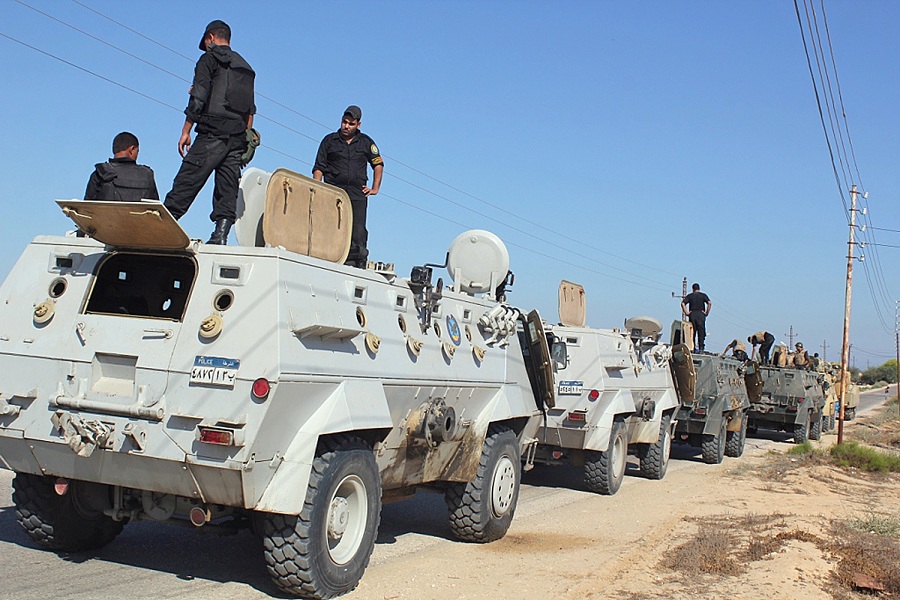
(Photo from Armed Forces)
The Egyptian army launched airstrikes against targets in Libya following the killing of 21 Egyptian workers in the country who were kidnapped by “Islamic State” in Libya.
The strike, conducted in the early hours of Monday, “hit its targets accurately”, an armed forces statement said.
The airstrike came on the order by the National Defence Council, based on Egypt’s right to defend its people’s security and stability, the statement added.
President Abdel Fattah Al-Sisi had instructed the council’s assembly Sunday night, after the “Islamic State” had issued a video showing the beheadings of the Egyptians.
The 21 Egyptian Coptic Christian workers had been kidnapped in the city of Sirte.
“[The attack] is revenge for the criminal acts conducted by terrorist elements and groups inside and outside the country,” the army’s statement said. “Vengeance for Egyptian blood from killers and criminals is a right and an obligated duty.”
Libyan Air Force Commander Saqr Al-Jroushi said the strikes were coordinated between the Libyan and the Egyptian sides, according to Egyptian state TV.
Al-Jroushi added that the Islamic State sites were “accurately targeted” as the Egyptian jet fighters targeted the sites in Derna, north eastern coast of Libya. Their Libyan counterparts shelled other sites in Sirte and Bin Jawad, state TV reported.
He added that the strikes will continue in the coming two days.
The city of Derna witnessed first documented appearance of Islamic State fighters in October 2014 as the paraded the streets of the city that has become a hot spot for the radical Islamist in Libya.
Although the kidnapping of the Copts, and possibly their killing, happened in Sirte, the Egyptian strikes were concentrated in Derna. This was a matter of “strategic planning” according to Ayman Al-Sisi, an analyst at the Al-Ahram Center for Political and Strategic Studies specialised in Libyan affairs.
The analyst said he was against the idea of launching airstrikes inside Libya, as he believes “this may expose Egyptians in Libya to further criminal acts”.
He added that militant involvement for Egypt in Libya may have “catastrophic consequences” if not meticulously planned and executed.
The “pressure of the situation (beheading Egyptian workers) must have had its effect on the leadership’s decision” to launch airstrikes, he added.
The beheadings could pile pressure on Al-Sisi to show he is in control of Egypt’s security, even though he has already made progress against Islamist militant insurgents in the Sinai, Reuters reported.
Al-Jroushi said 40 to 50 militants were killed in Monday’s air strikes. However unofficial social media accounts affiliated to the Islamic State in Libya denied causalities among their ranks.
Residents of Derna told Daily News Egypt that the strikes also hit residential buildings and led to injuries and deaths amongst civilians, however this has yet to be confirmed by officials.
The Islamist faction’s response to the airstrikes was intense as the Libya Dawn, a coalition of Islamist militias that control the capital city of Tripoli, issued a statement in which it called on Egyptian workers in Libya to leave the country within 48 hours. They said this was to avoid any criminal acts against them, according to Egyptian state news agency MENA.
Although there are no clear figures for the number of Egyptian workers and residents in Libya, estimations by Libyan officials indicate approximately 1.3 million Egyptians are in the country.


